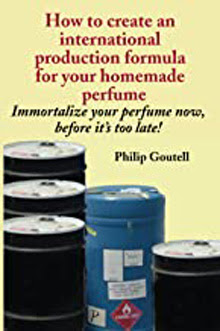If you are developing a fragrance you intend to sell, it is helpful to be very sensitive to the tastes of your intended market. You want to develop a fragrance that will be pleasing to them and, hopefully, more pleasing than the alternatives that are available to them. What they might, and what you might, want aren't necessarily the same.
For example, I'm enchanted by a fragrance now called "Xotic." It's a strong fragrance with a wake-up quality and I like the smell of it in the morning. But I know, from experience, that this is not a fragrance women would rush to buy for their men and a large number of their men, thinking of their women, would likely shun it too. Thus is doesn't have strong commercial appeal.
If you want suggestions for a commercial creation, the logical starting inspiration is the perfume counter of a department store or specialty retailer. Smelling the scents that are being mass marketed will help define the boundaries of your own creation. Professional perfumers developing commercial fragrances themselves take this approach.
But suppose that, for once in your life at least, you want to design a fragrance for a market of one: yourself. This can be an exciting project.
Recently I had a fix-it project that called for the use of a small amount of a solvent. I'm away from home for the summer, away from all those bottles of alcohol on the shelf, but I had on my desk in front of me a bottle of one of my fragrances, one that I had decided I didn't like very much and had already reformulated, considering the original composition junk.
So, being junk and about 90 percent alcohol, I decided to use it for the solvent I needed. I put some paper down on the desk and poured a bit of the fragrance, wetting the paper slightly. The room was immediately filled with the fragrance. I enjoyed the smell.
A piece of the paper remained on my desk for several weeks, scenting the room. What I had discarded as junk I was now finding quite pleasing. But it wasn't a fragrance I would try to sell. It was just a scent that, for me, was uplifting and pleasant.
If you decide to make a perfume just for yourself, without any commercial intentions, there are two obstacles, two hurdles to be overcome. First, you have to decide what you want your fragrance to be, what aroma you want. You have to be able to fix this is your mind -- which can be very difficult as you are dealing with an intangible. Some people have better scent imagination than others, just as some people have more visual imagination than others. It's something you can work on.
The second obstacle is technology. Once you have that scent fixed in your mind, how are you going to create it? You need the raw materials. Currently the professional perfumer has more than 3,000 potential materials to work with but a familiarity with as few as fifty can give you many possibilities. As a practical matter, you may want to adjust your perfect personal scent, the perfume you are going to make for yourself, to a mental image that will fit within the bounds of the materials you have on hand and understand.
Of course once you've created one perfume that is "just for yourself," it's likely you'll want to expand your knowledge of raw materials, the building blocks of perfumery, so that you can expand you imagined scents ... and create them.



No comments:
Post a Comment